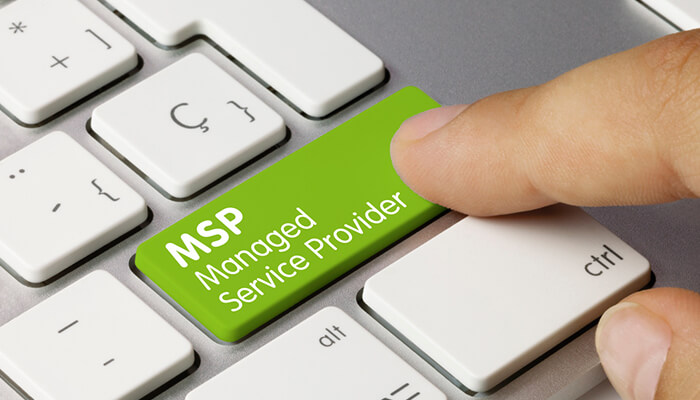Businesses today thrive on the internet, so many products and services are being rolled out left and right. But with the ease of using the World Wide Web comes various challenges. And these challenges, if you’re not prepared, can gobble you up and eat away what you’ve worked so hard for, and you can lose everything in an instant. You wouldn’t want that to happen. For this reason, you should hire a managed service provider.
What Is An MSP?
Managed Service Provider (MSP) are outsourced managed IT providers with a proactive approach. They will care for your information technology infrastructure through monitoring, enhancement, integration, troubleshooting, and repair. At best, they provide an information technology (IT) structure and support for your business to prevent problems from happening and escalating so your business can operate normally.
Why Do You Need One?
Operating a business today can take a toll on anyone. Sometimes, eight hours a day isn’t enough because there are just so many things to manage. There’s workforce, production, marketing, distribution, and customer service. Because of this, it would be best to get an managed service provider for something complex like your IT infrastructure so you can focus on other essential things of your business.
Sure, you can hire in-house staff to manage your IT, but the cost of staffing a bunch of people you may need to pay benefits and other perks can sometimes be costlier than paying a flat rate for an MSP. And today, hiring and finding a qualified IT specialist can be quite rigorous.
When you have an MSP on your side, you can be sure that they will not compromise your company’s productivity. Work will be continuous, and downtime will be minimized. Your IT infrastructure will be healthy and strong, and no breaches can happen at their helm.
It would be best if you had an MSP for your business to reduce your liability in your operations, especially in handling your client data. It would help if you had a solid safeguard to ensure data is protected and secured and no malicious software can infiltrate its boundary.
What Are The Services Offered By MSP?
The work done by an MSP is vast, and its sophistication and intricacy are not a joke. Here are a few of the tasks they can handle for you:
- Cybersecurity
- Network and Infrastructure
- Support services (on-site and remote)
- Print services
- Cloud infrastructure
- Software-as-a-Service (SaaS) management
- Wireless and data computing
- Data Analytics
- Email support
Now that you’ve seen the broad scope of the job they could do for you if you’re planning to hire one, ask the right questions, so you know that you’ll be the perfect match. Here are some of the questions you may need to ask:
1. What Is Their Responsiveness Rate?
One of the critical metrics MSPs are measuring is their responsiveness rate. It’s one of the benchmarks of a dedicated provider. Do they respond after an hour? A day, or worse, after two days?
Most IT problems need an immediate solution because, many times, the system will hang and cannot be accessed. An MSP should have staff managing their desks 24/7 to answer calls and escalate the issue to the expert on the team. This way, proper resolution can be done. It would be best if you determined from your prospective MSP what’s their responsiveness rate to help you decide better.
2. How Do You Back Up Data?
Most data these days are stored in the cloud, but talented and resourceful hackers can compromise that. You must know if they also have external backup storage or other options to ensure your data is safe and secure.
3. What Is Your Pricing Model?
It’s vital to know the pricing model of your prospective managed service provider so you can allocate the proper budget for it in your operating expenses. Some MSPs have a flat fee, while some charge a per device per month on top of the flat fee,
Some MSPs will quote you for your company’s specific needs and create a tier if you add more services along the way— some charge for a particular service only. In acquiring an MSP’s services, you must remember there is no one-size-fits-all model. You can’t compare the price your friend or business partner paid for in their other company because your business might subscribe to more pricey options.
4. Do You Include Software Licenses In Your Pricing?
All your devices need professional licenses to run smoothly. Most MSPs have these, but if your devices already have installed professional licenses, you might only need to upgrade. In addition, you should discuss details like this with your managed service provider so you can save at least.
5. How Are Other Projects Charged?
Suppose you already hired them for a period under specific tasks. However, you would need their services for other matters like migration, integration, or new installations; how would they charge you for these services? Since you already have a professional working relationship, they can give a discount on added tasks or do it for you pro bono. There’s nothing wrong in asking; who knows, they might be willing to throw in a discount code you can use.
Conclusion
Growing a business will be more manageable with the proper support of experienced service providers. You’ll be able to focus on the essential things and let them handle the technical aspect of your operations. But to land on one that will deliver the best work, you need to ask the right questions.
Don’t be afraid to scrutinize. Your managed service provider should be open to discussing these things if they’re passionate and dedicated to their work. So, go ahead, and ask the right questions. This way, you’ll know that you’ve got all bases covered.



